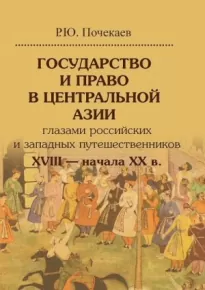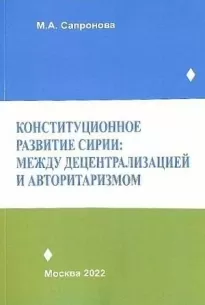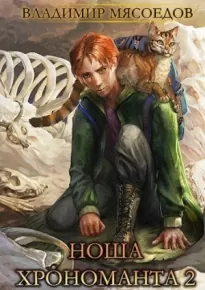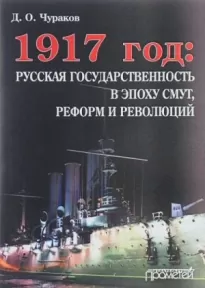Кланы в постсоветской Центральной Азии
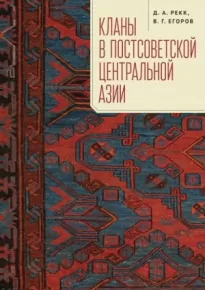
- Автор: Владимир Егоров
- Жанр: Политика и дипломатия
- Дата выхода: 2022
Читать книгу "Кланы в постсоветской Центральной Азии"
III. Литература на иностранном языке
Казак эдет-гурып кукыгынын материалдары. Материалы по казахскому обычному праву ⁄ Ред. 3. Кенжалиев [и др.]. Алматы: Жетi жаргы, 1996. С. 12–13.
Asia Times // URL: http://www.atimes.com/atimes/Central_Asia/ EC13AgO3.html)
Burghart D. L. Sabonis-Helfth in the Track of Tamerland//Central Asia's Path to the 21st Century. Washington. DC8 NDU. 2004. P. 91–126.
Ceccarelli, Alessandra (15 August 2007)//Clans, politics and organized crime in Central Asia. Trends in Organized Crime. 10 (3): 19–36.//URL: https://doi.org/10.1007%2Fsl2117-007-9011-z
Changes in Uzbekistan/s Military Policy after the Andijan Events//Central Asia-Caucasus Institute and Silk Road Studies Program // URL: http://216.109.125.130/search/cache?p=resignation+Karimov+andijan&ei =UTF-8&fr=yfp-501&x=wrt&u=www.silkroadstudies.org/new/docs/CEF/ Quarterly/February_2007/Burnashev_Chernykh.pdf&w=resignation+karimov +andijan&d=MPllo_mdOfR/n&cp=l&.intl=us
Collins К. Economic and security regionalism among patrimonial authoritarian regimes: The case of Central Asia studies//Europe-Asia studies. Glasgow, 2009. Vol. 61. № 2. P. 249–281.
Collins K. The logic of clan politics Evidence from the Central Asian Trajectories//World Politics 56 (January 2004). P. 224–261.
Collins K. The Political Role of Clans in Central Asia // Comparative Politics. Janyary 2003. P. 171–190.
Collins K. Clan politics and regime transition in Central Asia. – Cambridge: Cambridge Univ. Press, 2006. XX, 376 p.: M. Ind. P. 365–376.
Collins K. (July 2002). Clans, Pacts, and Politics in Central Asia. Journal of Democracy. 13: 137–152 – via Project MUSE//URL: https://muse.jhu.edu/ article/17211/ summary
Collins K. (January 2003). The Political Role of Clans in Central Asia. Comparative Politics. 35: 171–191.
Coping With Independence: Expanding Factors of Conflict in the Ferghana Valley II URL: http://216.109.125.130/search/cache?p=Fergana+clan&ei=UTF-8&fr=yfr-t-501&x=wrt8m=www.indiana.edu/%257Eworkshop/seminars/papers/ y673_spring_2003_eddings.pdf&w=fergana+clans&d=NTVDf_mdOhfh8dcp=l&. intl=us
Diaz-Cayeros A., Magaloni B., Weingast B. Tragic brilliance: equilibrium party hegemony in Mexico (April) Available at SSRN 2003//URL: http://ssrn. com/abstract= 1153510
Freedom in the World 2018. Kyrgyzstan (2018)//Freedomhouse.org//URL: https://freedomhouse.org/report/freedom_world/2018/
Gellner Ernest (1983). Nations and Nationalism. Oxford: Oxford University Press.
Gullette D. The problems of the “clan” politics model of Central Asian Statehood: A call for alternative path ways for research//Chapter January 2010.
Gullette D. Theories on Central Asian Factionalism: The debate in political science and its wider implications//Centr. Asian Survey. Oxford, 2007. Vol. 26. № 3. P. 373–387.
Haass R.N. (2018) Liberal World Order //Project-syndicate.org, March 21, 2018 П URL: https://www.project-syndicate.org/commentary/end-of-liberal-world-order-by-richard-n – haass-2018-03
Hess S. Authoritarian Landscaps. Popular Mobilization and the Institutional Sources of Resilience in Nondemocracies. Springer. N.Y.: Heidelberg Dordrecht London, 2013. P. 20.
Khegai J. Institute for International and Europian Policy Catholic University of Leuven. ECPR Joint Sessions of Workshops, Uppsala, 13–18 April, 2004. Workshop 18 – Comparing Transformations: The Institutional Paradigm.
Kyrgyzstan's unrest linked to clan rivalries//URL: http://www.eurasianet. org/departments/insight/articles/eav060502.shtml; 2007-04-09 at the Wayback Machine EurasiaNet//URL: https://web.archive,org/web/20070409084323/http://www.eurasianet.org/departments/insight/articles/eav060502.shtml
LaruelleM. (ed.) 2017. Kazakhstan: Nation-branding, Economic Trials, and Cultural Changes, Washington: The George Washington University. P. 3–17.
McAdam D. Tactical innovation and the pace of insurgency. Am Social Rev. 48 (6). 1983. P. 735–754.
McAdam D. Recruitment to high-risk activism: the case of freedom summer. Am J. Social 92 (1). 1986. P. 64–90.
Militant Islam in Central Asia: The Case of the Islamic Movement of Uzbekistan//URL: http://ist-socrates.berkeley.edu/-bsp/publications/2003_06-naum.pdf; 2006-09-06 at the W ayback Machine University of California, Berkeley//URL: (https://web.archive.org/web/20060906113345/http://ist-socrates. berkeley.edu/-bsp/publications/2003_06-naum.pdf
Ochoa-Reza Myltiple arenas of struggle: federalism and Mexicois transition, to democracy. In: Gibson E (ed) Federalism and democracy in Latin America. Johns Hopkins University Press. Baltimore. 2004. P. 256–257.
Parsons T. Societies: Evolutionary and Comparative Perspectives. Prentice-Hall, Englewood Cliffs, New Jersey, 1966.
Schatz E. Modern clan politics: The power of blood in Kazakhstan and beyond. L. 2004. – 280 p.
Schedler A. The new institutionalism in the study of authoritarian regimes. Centro de Investigacion у Docencia Economicas (CIDE) Working Paper 215, Nov 2009 a.
Suny Ronald. “Provisional Stabilities: The Politics of Identity in Post-Soviet Eurasia”, International Security: 24 (Winter 2000), 164: Treisman. P. 231.
Starr S.F. 2006. Clans, Authoritarian Rules and Parliaments in Central Asia, Central Asia-Caucasus Institute and Silk Road Studies Program- A Joint Transatlantic Research and Policy Center. Johns Hopkins University-SAIS. 1619 Massachusetts Ave. NW. Washington. D.C. 20036. Uppsala University, Box 514, 75120 Uppsala, Sweden. // URL: www.silkroadstudies.org
Tarrow S. Power in movement. Cambridge University Press. Cambridge. 1994.
Tarrow S. The new contentious politics in China: poor and blank or rich and complex?//O’Brien K. (ed) Popular protest in China. Harvard University Press, Cambridge. 2008. P. 56–57.
Weingast B. Second generation fiscal federalism: the implications of fiscal incentives. J. Urban Econ. 65. 2009. P. 279–293.
Williamson O. The economic institutions of capitalism. New York: Free Press. 1985.
